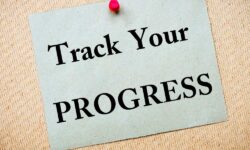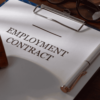A Disclosure and Barring Service (DBS) check is a vital step for many employers in the UK to ensure the safety and trustworthiness of individuals in roles involving vulnerable people. However, mistakes can sometimes occur. If you believe your DBS certificate contains errors or inaccurate information, you have the legal right to challenge the results. Here’s what you need to know.
When Can You Challenge a DBS Check?
You can challenge the results of a DBS check if you believe the information on your certificate is incorrect, misleading, or should not have been disclosed. Common reasons for disputes include:
-
Personal details being wrong (e.g., name, address, date of birth)
-
Incorrect criminal record information
-
Outdated or spent convictions being included
-
Errors in the police disclosure or barring lists
How to Challenge the Results of a DBS Check
Challenging a DBS check involves a formal process:
-
Contact the DBS immediately. You should notify the Disclosure and Barring Service as soon as you spot the error.
-
Provide evidence. Supply documents or proof to support your claim.
-
Request a Certificate Dispute Form. This is available through the DBS website or by contacting their helpline.
-
Submit your dispute. Clearly outline the error and the reasons why it should be corrected.
The DBS will investigate your claim and, if necessary, liaise with the police or other relevant authorities to review the information.
How Long Does the Dispute Process Take?
The time frame varies depending on the nature of the dispute. Minor administrative errors can often be resolved within a few weeks, while disputes involving police-held information may take longer. During the review, employers are usually advised not to make a final decision based solely on the disputed certificate.
Your Rights During the Process
UK law protects applicants during the DBS dispute process. You have the right to:
-
Request a full review of the information included
-
Be informed of the progress and outcome of your dispute
-
Have the information corrected or removed if found to be inaccurate
Employers must act fairly and give you the opportunity to resolve the issue before making any employment-related decisions.
Final Thoughts
Errors in DBS certificates, while rare, can have serious implications for your career and opportunities. Knowing how to challenge the results of a DBS check ensures you protect your rights and maintain your professional reputation. If you suspect an error, act promptly to initiate the dispute process and follow up until it is resolved.
For more guidance or to apply for a DBS check online, visit CRB Direct









